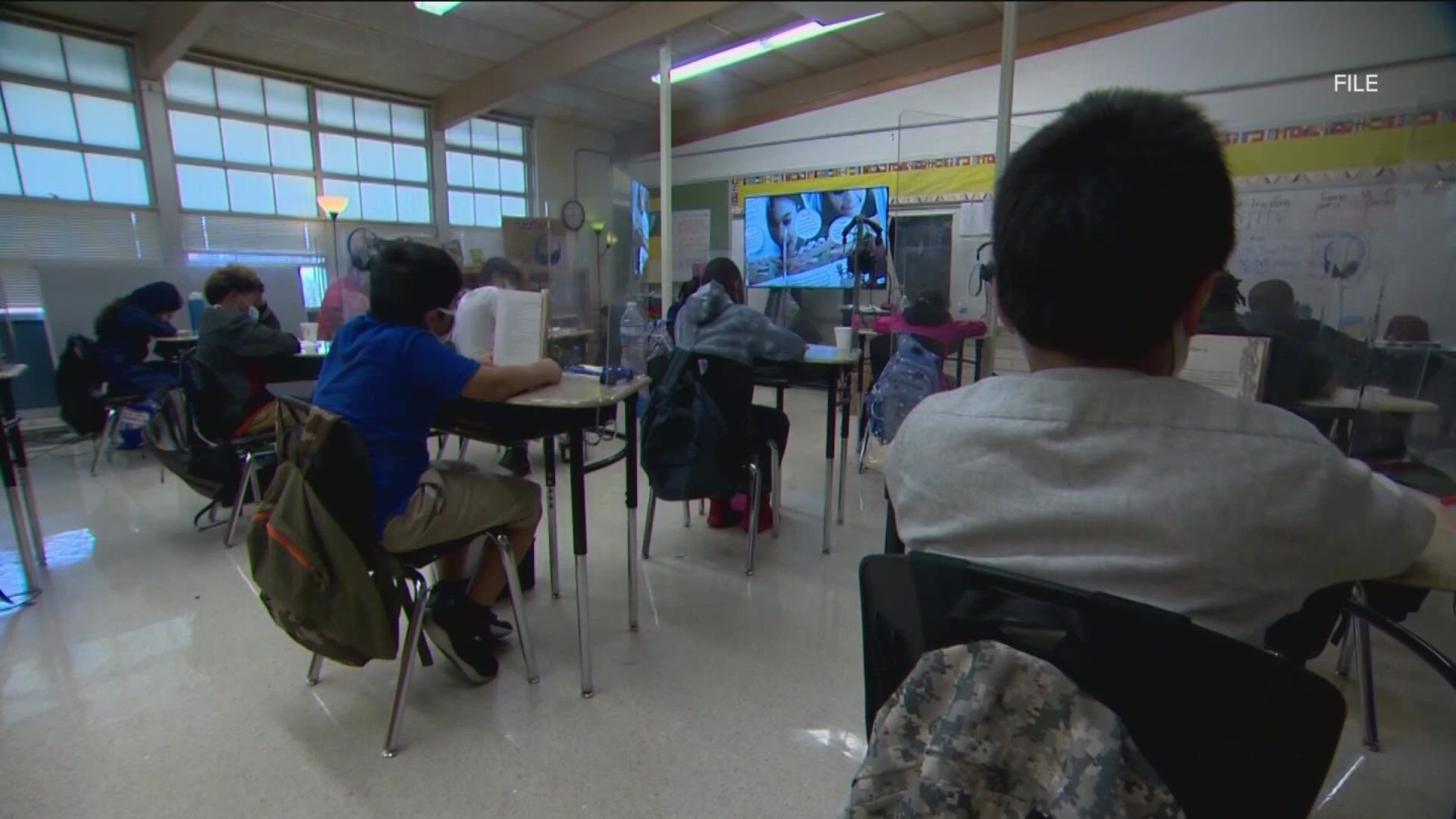AUSTIN, Texas — New data from a local child advocacy group shows Texas is ranking low and last in multiple categories of child development and care.
The Texans Care for Children organization recently released its new school readiness dashboard that explores what children need at home.
Texas is the second-largest state by population in America, yet it ranks last in major benchmarks like health equity and preparedness for kids.
"There are far too many areas, from child hunger to poverty, to health coverage, that Texas just has a lot of work to do to catch up to the rest of the nation," said David Feigen, the director of early learning policy for Texans Care for Children. "We do advocacy at the Capitol for children to have a happy and healthy life, whether that be access to quality education or quality health care."
The organization's new school readiness dashboard helps to outline what Texas children need before they step foot in a classroom setting.
It found that one in five children eligible for SNAP benefits are not receiving them, and 12% of Texas children under the age of six, who are eligible for Medicaid, are uninsured.
"There are other states we can learn from. There's things we can do, and the dashboard includes all of that. So we can really turn this ship around," he said.
Feigen said avenues like access to childcare are severely lacking in Texas.
The dashboard shows 53% of low-income children under age six, with working parents, live in areas with inadequate access to subsidized care.
"Directors telling us in tears that, you know, we're getting calls off the hook, 'Please enroll my child, please enroll my child.' They don't have access to the teachers. They don't have access to the space to be able to serve the demand in their communities," said Feigen.
But what can be done to help Texas catch up?
"We have a budget surplus this session. We have state funds that need to be spent. And I really hope they're spent on our youngest Texans," said Feigen.
He noted their team has over 50 policy recommendations they hope to see bipartisan support for during the upcoming 2023 legislative session.
Some of these recommendations include:
- Extend maternal health coverage to a full year after pregnancy
- Remove unintended barriers that block eligible children from enrolling in or renewing Medicaid health insurance, SNAP assistance and other safety-net programs
- Provide state funding to ensure child care providers are able to stay open, improve quality and provide children with the support they need during early childhood
- Increase access to evidence-based home visiting programs that serve families on a voluntary basis
"I think there is a bipartisan understanding that school readiness is important, that school outcomes are important, and for children to live up to their potential," said Feigen.

